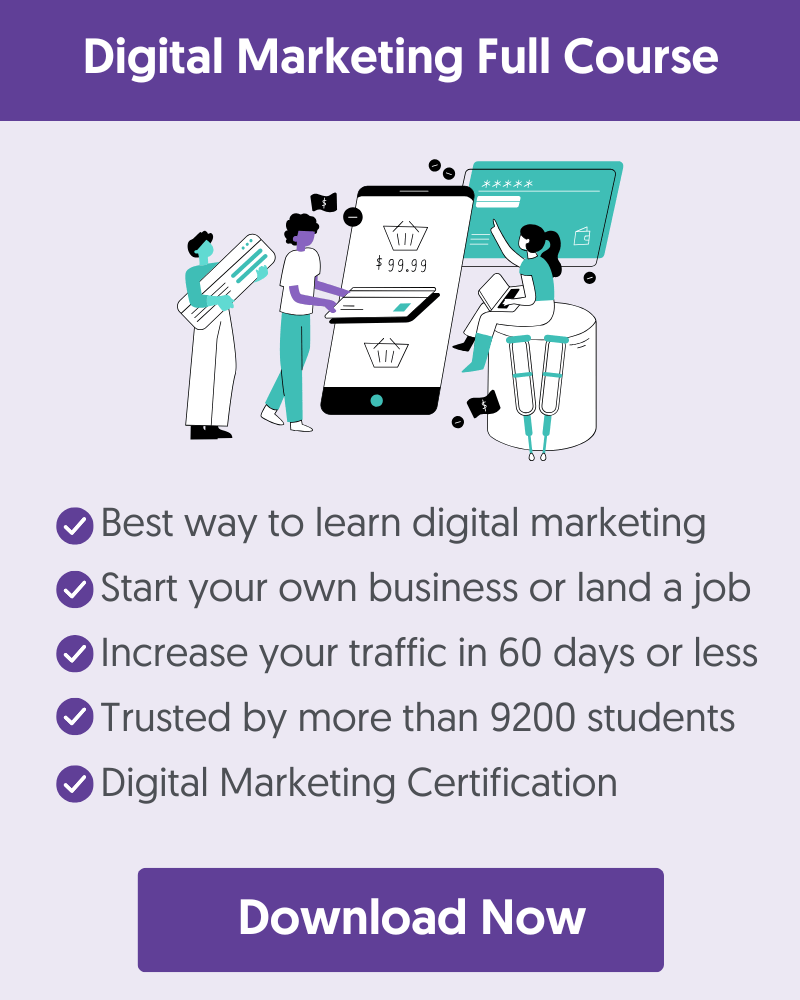Developing a digital marketing strategy for a franchise business can be complex.
It requires balancing the need for brand consistency across all digital marketing channels with the flexibility to run local campaigns for each franchise location.
In this post, we’ll explain how franchise owners can design and execute a digital marketing strategy for their business more easily.
What is Franchise Digital Marketing?
Franchise digital marketing is the process of using various marketing channels and techniques to promote a franchise business online.
Franchises can use different strategies to engage their audience in the digital world, from search engine optimization and content marketing to social media, email, and paid ad campaigns.
The goal of franchise marketing is to acquire new customers and new franchise owners and employees.
Why is Digital Marketing Important to a Franchise?
With an effective marketing strategy, franchises can develop a strong community presence and accelerate growth throughout their industry.
For instance, McDonald's, one of the world’s most recognized franchise-based businesses, invests heavily in marketing across various channels to connect with its audience.

An effective digital marketing strategy can help franchisees to:
- Improve brand awareness and visibility.
- Increase sales.
- Enhance loyalty.
Digital Marketing Strategies for Franchises
- Establish Brand Guidelines
- Design a Professional Website
- Invest in Local SEO
- Run Multi-Location PPC Ads
- Build Local Facebook Audiences
- Monitor and Respond to Online Reviews
- Share Valuable and Engaging Content
- Create a Mobile Application
- Build a Video Marketing Strategy
- Take Advantage of Offline Strategies
1. Establish Brand Guidelines
One of the biggest challenges franchise owners face is maintaining consistency.
Without the right guidelines, a brand’s image can easily become diluted.
That’s why successful franchises must create step-by-step usage policies and branded assets for all their franchise owners to use consistently.
For example, companies like Wendy’s share dedicated assets with every franchise owner.

Brand guidelines usually include the following:
- Brand essence: They provide information on everything from the company’s origin story to its core values, mission, and purpose. This allows franchise owners to create a consistent personality with marketing materials.
- Visual assets: Guides on how to use a brand logo, color palette, and other essential assets (such as product photos) help create a consistent brand image.
- Editorial guidelines: Editorial guidelines help shape the messages companies send to their customers. They cover information like how to interact with customers on social media, what language to avoid, and what tone of voice to use.
2. Design a Professional Website
No franchise digital marketing strategy can succeed without a website. It acts as the “storefront” for your business's online presence.
A professional website needs to draw attention to all the key information customers need about your brand.
It should reflect your brand identity and tone of voice, as outlined in your guidelines. It also needs to adapt to the needs of a broad audience.
For instance, the Burger King website offers unique content and insight into the availability of each customer’s location.
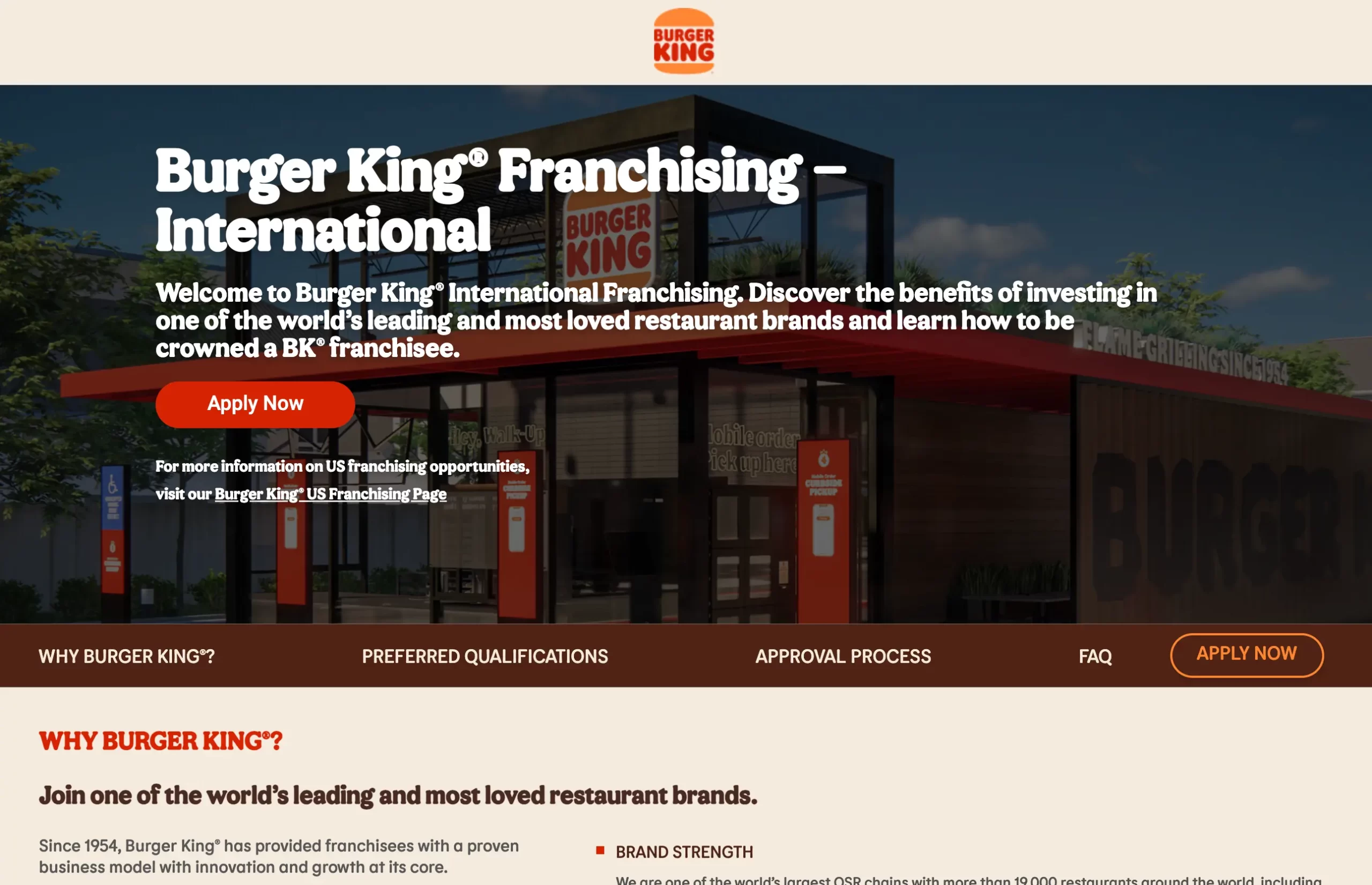
It also shares plenty of valuable information, such as:
- An About section: The “About” section on the BK site is a complete guide to the Burger King story, career opportunities, nutrition details, offer terms, delivery terms, allergen information, and franchising options.
- Legal data: Burger King provides valuable insights into valuable legal data, covering everything from its terms of service to its trademarks and privacy policy.
- Product information: On the Burger King site, customers can find information about loyalty cards, rewards, local offers, and menu items.
- Franchising: Provides information for people interested in becoming a franchisee.
3. Invest in Local SEO
Search Engine Optimization (SEO) is one of the most critical tools in your digital marketing kit.
It helps attract customers' attention on search engines and adds credibility to your brand identity.
Local online marketing is particularly important for franchise owners, as it helps them capture the attention of a more specific, targeted audience.
One of the first things you’ll need to determine when investing in local SEO is how you will organize the structure of your website.
If you’re selling in multiple countries, you can create specific pages for different regions under the same domain or use different domains for each local site.
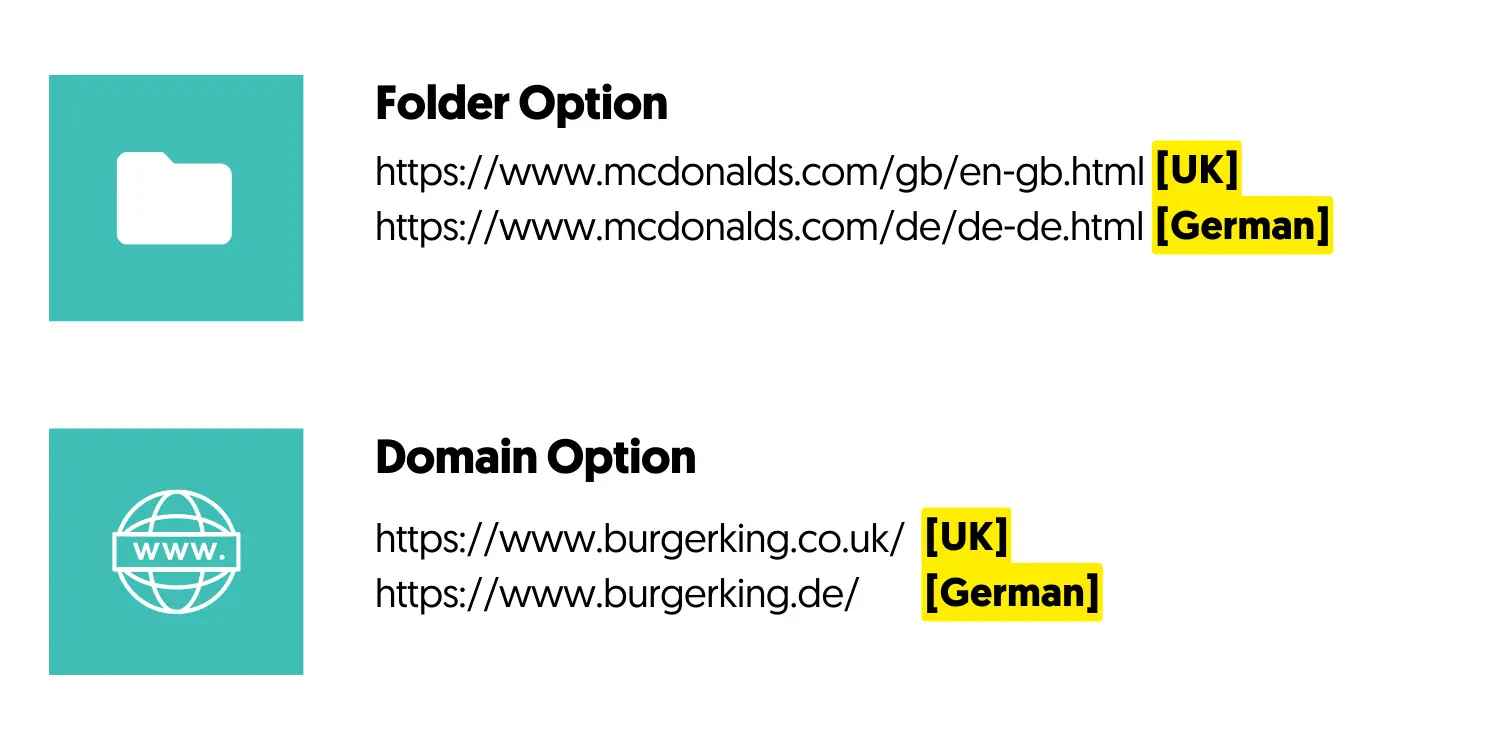
Once you’ve decided how to organize your pages, implement a local SEO strategy that includes:
- Google Business Profile Listings: Create a powerful GMB listing for every location, with consistent name, address, and phone number information across all listings.
- Local keyword research: Choose keywords specific to your location and create pages based on those terms.
- Content marketing: Publish content on your site that is relevant to the target audience in your location. This could mean creating blogs targeting “Near Me” keywords.
4. Run Multi-Location PPC Ads
While SEO will help you build a strong online presence over time, PPC marketing will allow you to attract leads faster.
Paid search ads and display ads are a cornerstone of many franchise marketing strategies.
They can help companies get the word out about new products, services, and offers. They also allow you to boost your position as an industry leader.
Creating ads specially tuned to each franchise location is crucial to earning targeted attention.
Your ads should consider the language, ethics, and values of the customers you’re trying to reach and their distinct pain points.
You can even create ads specifically designed for Google Maps, which target customers looking for specific products in their region.
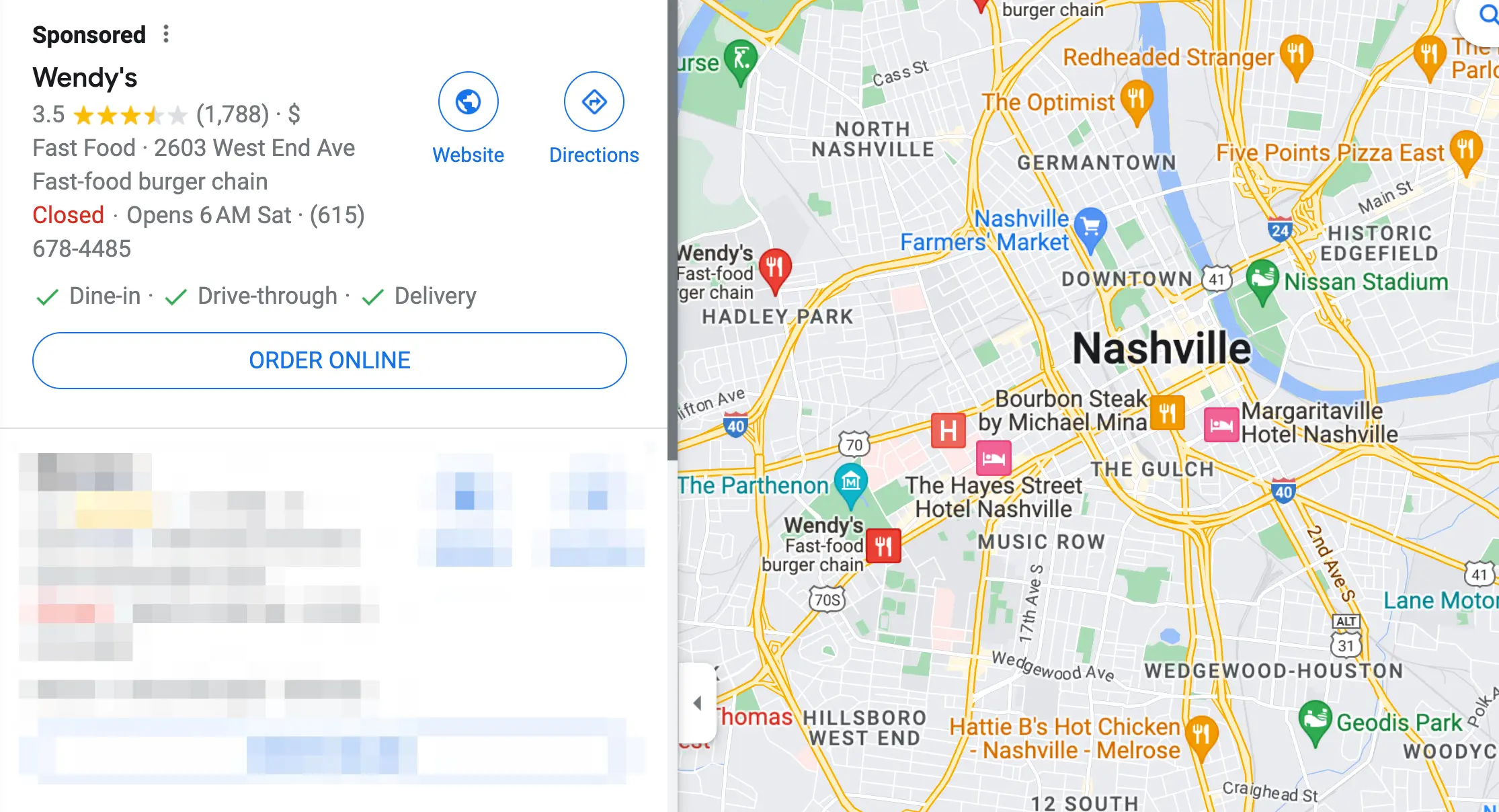
When creating local PPC campaigns, remember to:
- Leverage geographically focused keywords for regional campaigns
- Create custom landing pages for each location
- Experiment with different types of PPC advertising (display, maps, etc.)
- Conduct A/B tests for copy, imagery, and offers
- Monitor, analyze, and optimize your campaigns according to performance
5. Build Local Facebook Audiences
Effective digital marketing for franchise businesses relies heavily on the ability to build and nurture relationships with customers.
Social media is an excellent tool for this purpose. It allows you to connect with customers consistently and build engagement.
The right social channels ensure you can build a community around your brand, get customer feedback and insights, and promote new products and services.
Facebook is one of the most powerful tools for social media advertising, with more than 2.98 billion monthly active users. Meta’s advertising tools for businesses also make it easier to target the right audience for your franchise.
You can create custom audiences for each franchise location or use “lookalike audiences” to share data between different locations in the same country.
Facebook also makes it easy to create engaging retargeting campaigns, which remind your customers of the benefits and deals your company can offer based on their interests.
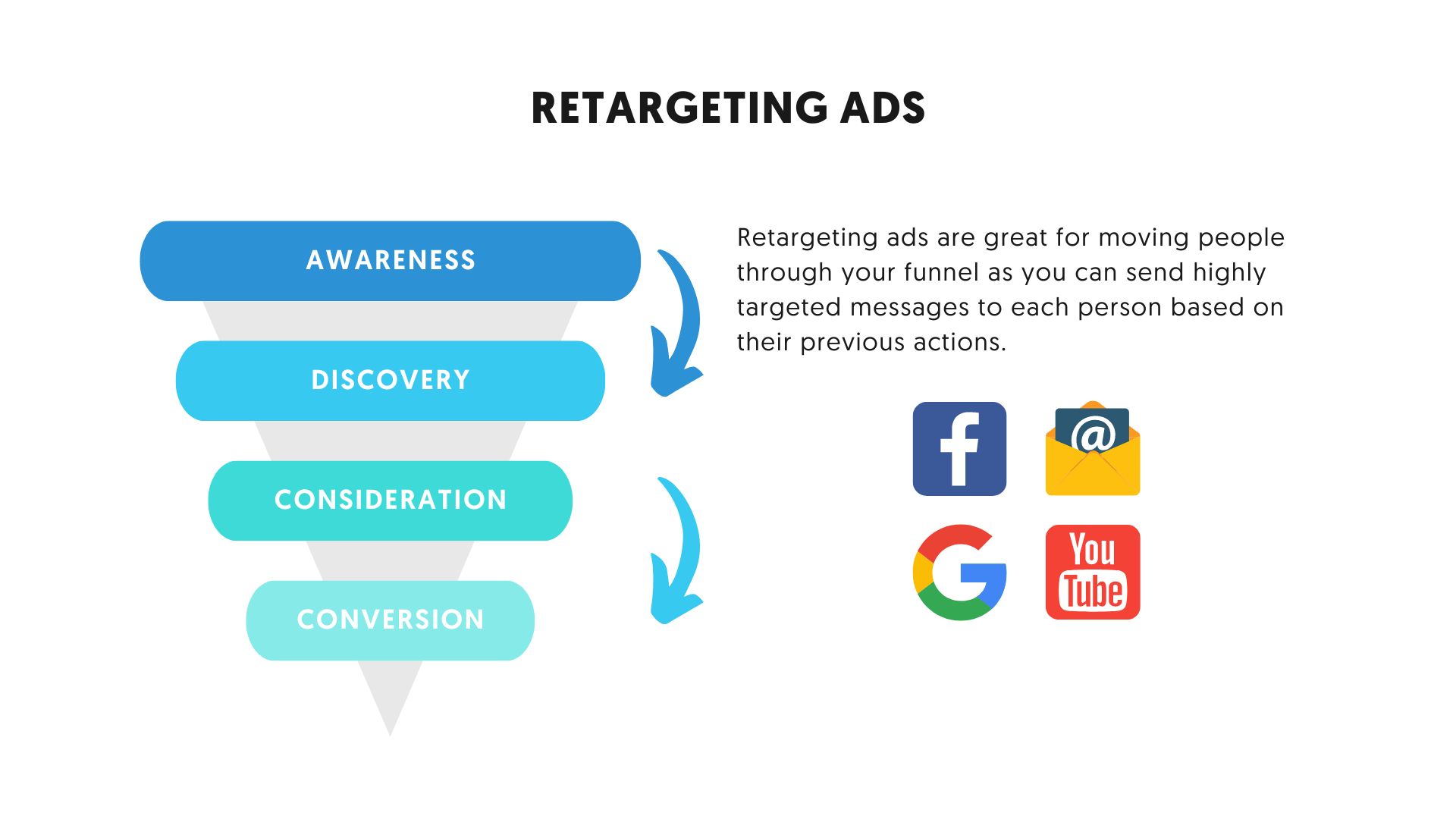
6. Monitor and Respond to Online Reviews
Building an online community is just the first step. You also need to ensure that you’re preserving your brand’s reputation with consumers and retaining their loyalty.
Every customer wants to feel heard. If you commit to connecting with your customers, they’re less likely to view you as just another faceless corporation and more likely to establish strong relationships with your company.
Use social listening and monitoring tools to listen to what customers say about your business online. These tools can also provide insights into competitors, which could lead to new strategies for connecting with consumers.
It’s also worth paying attention to customers' comments on your social media pages and the messages they send. Many consumers now use social media to interact with brands and share their thoughts and feelings.
For instance, KFC constantly monitors the comments sent to its franchise owners on Twitter, responding to negative and positive insights.

7. Share Valuable and Engaging Content
Content marketing is another valuable online marketing strategy used by franchises worldwide.
It’s one of the best ways for companies to connect with and consistently deliver value to their audience.
Plus, it helps you to develop a sense of credibility and authority.
Effective content marketing relies on your ability to understand your target audience, their interests, and their pain points.
It also means knowing how to share content on all the platforms your customers use.
For instance, 7-Eleven has its own dedicated blog, where it shares insights into its latest products and informative articles, such as “Is coffee good for a hangover?”
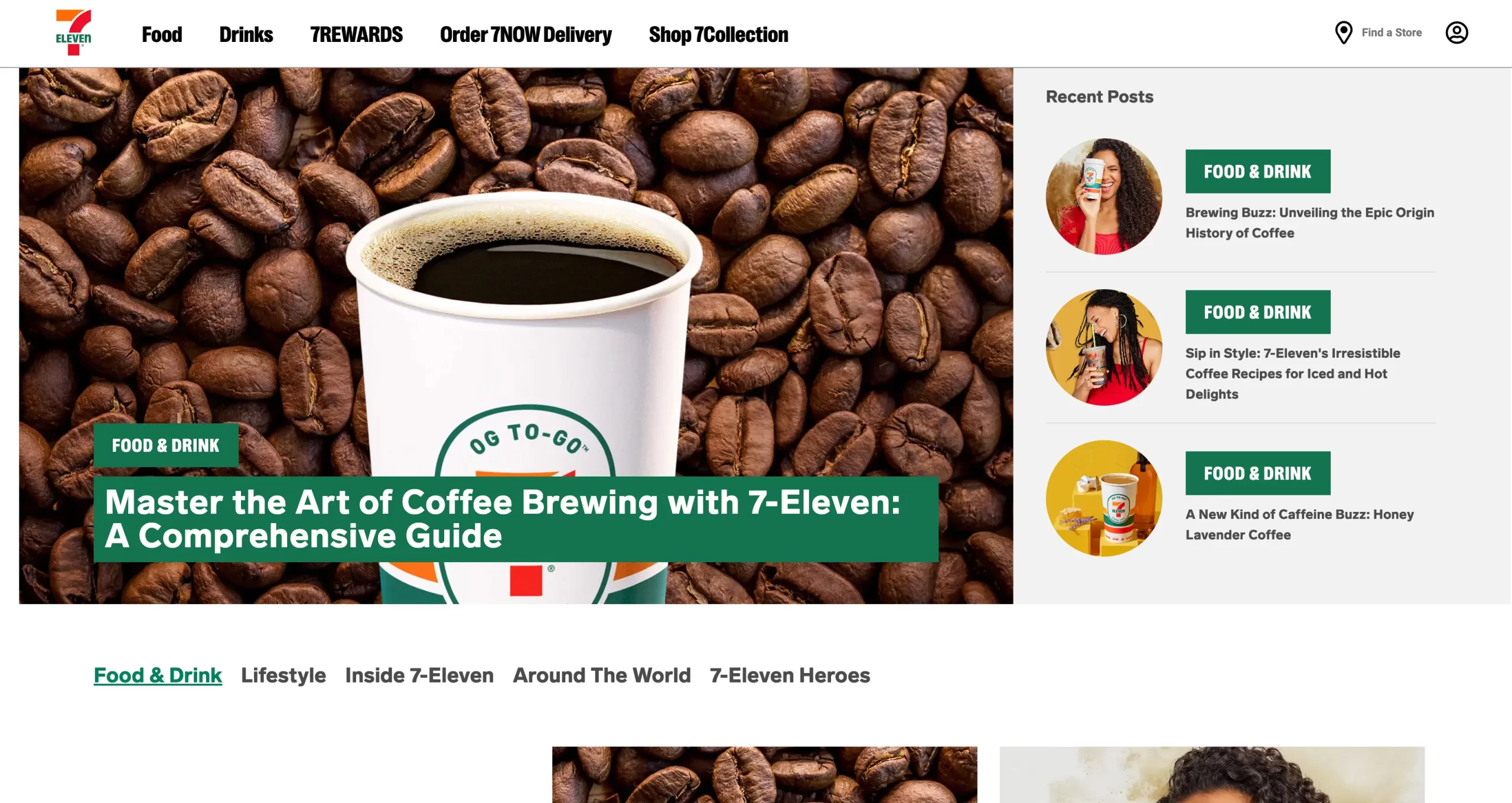
Arby’s takes a similar approach: a blog on its website, a dedicated site for franchise owners, and even an email marketing strategy for sharing updates with consumers.
When creating your content strategy, remember to:
- Know your audience: Learn as much as possible about your target audience, the questions they ask, and the issues they face. Create content that delivers value in a language your customers can understand.
- Experiment with media: Don’t focus solely on blog posts and articles. Explore new ways to reach your audience through videos, podcasts, email marketing, and visual strategies.
- Monitor results: Pay attention to which types of content generate the most interest and engagement from your target audience. Focus on social media shares, website traffic, and your customers' time on each page.
8. Create a Mobile Application
While a mobile-optimized website is a good tool for connecting with your audience, an app is even more effective.
Some of the world’s biggest brands use mobile apps to send push notifications to customers in local environments and even build loyalty campaigns.
For instance, the McDonalds app allows customers to access deals in their local area instantly, earn points for their purchases, and even track the latest offers.
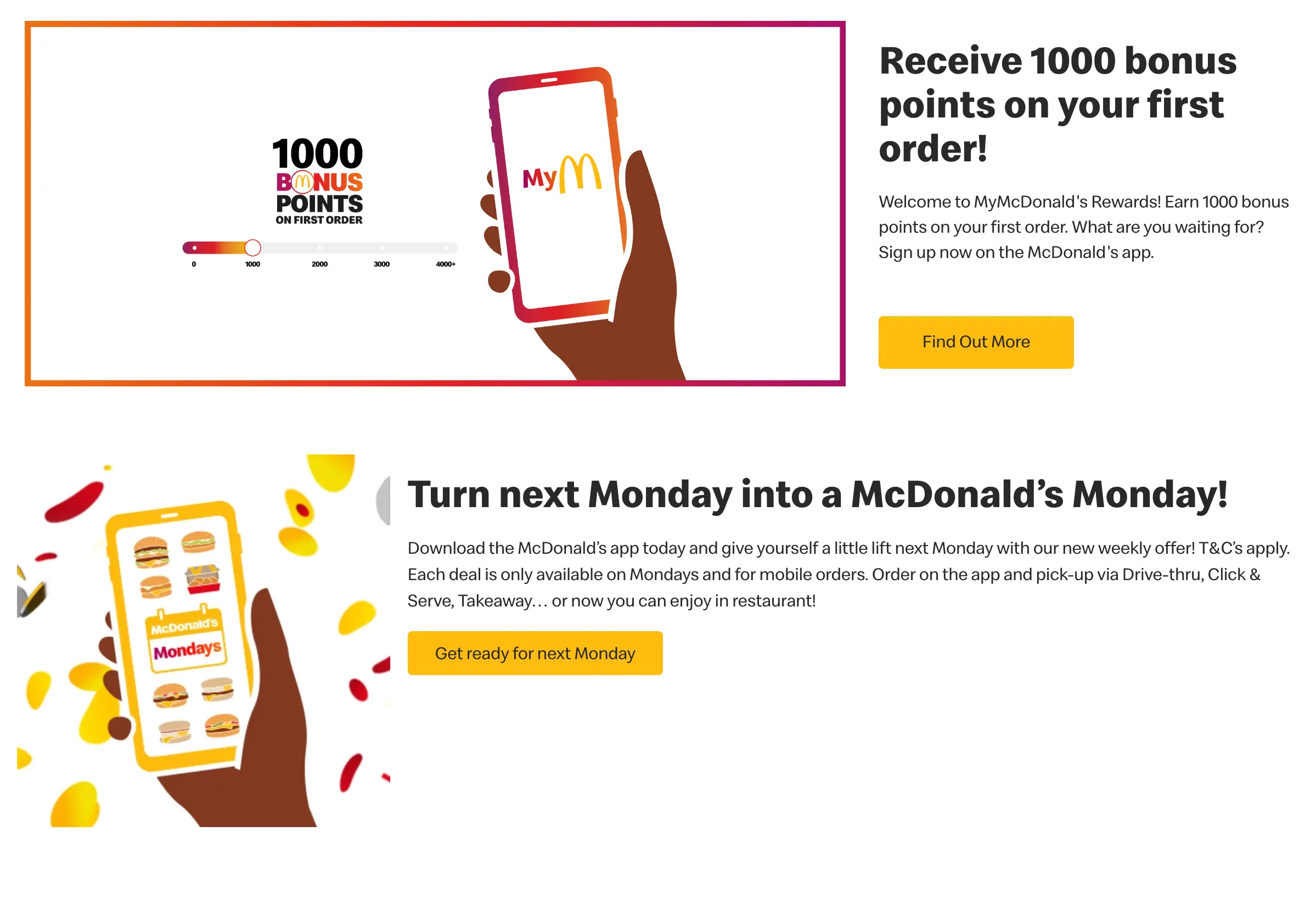
Plus, it makes the customer experience more manageable by allowing consumers to order and pay for products in their app and then simply pick up their order or have it delivered.
A dedicated app can also give your consumers an easy way to contact your team. A chat tool or form within your app ensures buyers can instantly share reviews, ratings, thoughts, and complaints without visiting your website.
9. Build a Video Marketing Strategy
Visual content has taken over digital marketing in the last few years. Video, in particular, has become extremely popular thanks to the rising impact of TikTok, Instagram, YouTube, and Facebook videos.
Currently, around 91% of businesses use video as a marketing tool. The right campaigns can help you build trust with your audience, generate engagement, and even pull more traffic to your website and social media pages.
Subway uses video marketing on YouTube to highlight its products and latest offers and provide behind-the-scenes insights into the company’s unique personality and history.
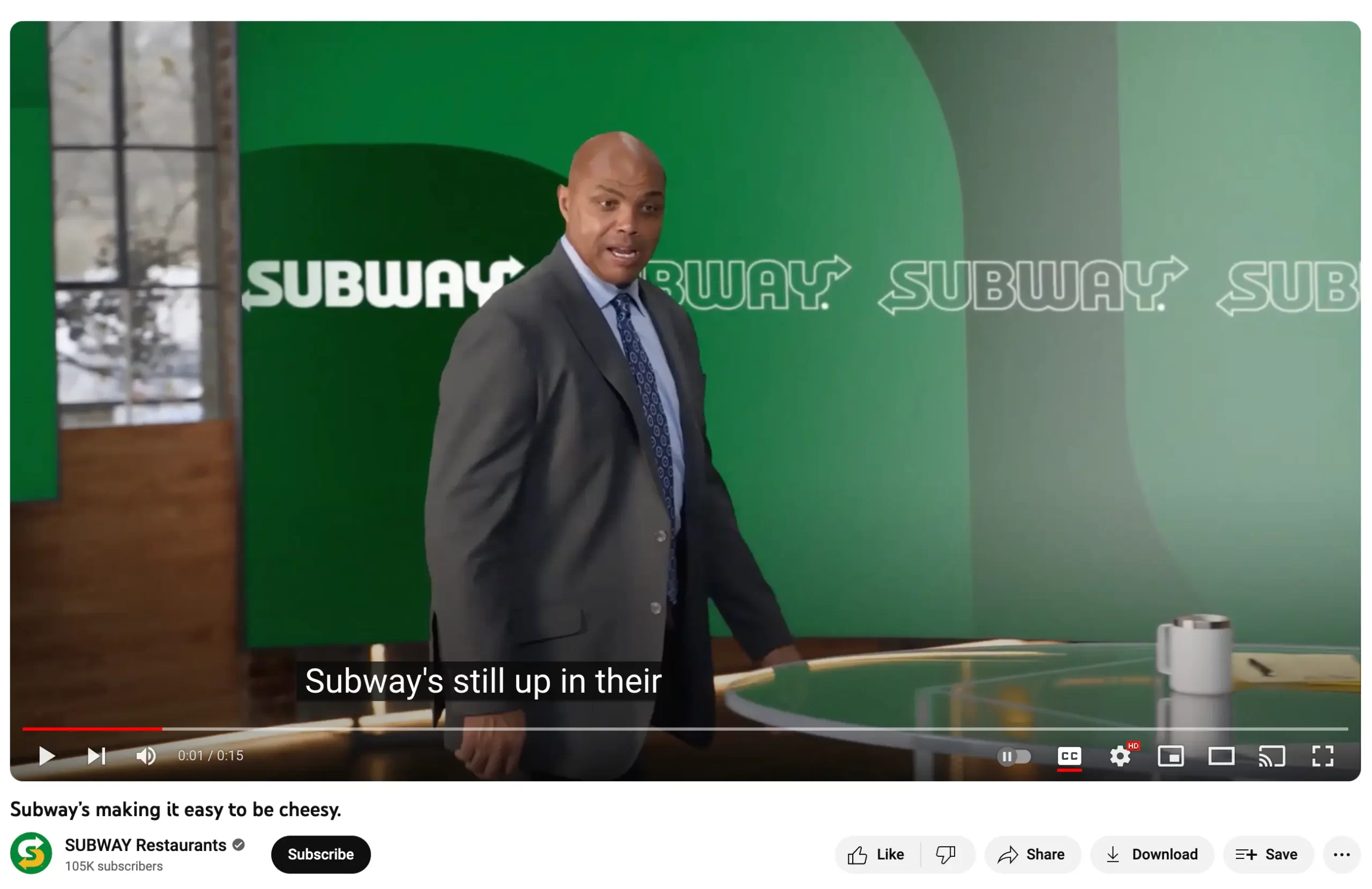
Wendy’s uses platforms like TikTok and Instagram to connect with its audience through humorous, fast-paced content.
The videos showcase the latest items available at Wendy’s locations and get people talking with fun captions and hashtags.
Video, used correctly, can even help your business go viral. 51% of customers say they’re likelier to share a video with their friends than any other type of content.
10. Take Advantage of Offline Strategies
Finally, while a strong digital presence is essential for modern franchises, offline interactions should not be overlooked.
Franchise businesses generally operate in the physical world, which requires them to build a connection with people in person.
Companies like Pizza Hut connect with their target audience emotionally by sponsoring local events, sports teams, and more.
McDonalds hosts regular events and meetings for shareholders and gets involved with local community events and charities.
Investing in your connection with your local audience through offline strategies can help to give your franchise a more human essence.
Experience-based interactions boost loyalty and engagement and get people talking about your business on a massive scale.
Conclusion
Marketing for franchises can be a complex process, particularly when so many different stakeholders and businesses are involved. However, the right marketing strategy is crucial to engaging your audience, driving sales, and increasing loyalty.
Remember, what works for one franchise location may not work for another. It's important to continually test, measure, and adjust your strategies to find what works best in each market.
